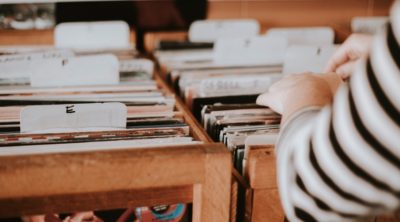
While operas have always been regarded as entertainment for the intellectually and socially forward, some of the most famous operas in the world find mention in popular art and culture as well. In this article, we discuss some of the most popular operas of all time.
Think opera and one of the first images that springs to my mind is that of Bianca Castafiore, the character from the Tintin series, depicted to be one of the leading opera singers of her time, who always insisted to give performances at a volume that would break glasses, part Captain Haddock’s hair, and also result in temporary deafness. That though was a mean caricature of an opera singer by a cartoonist who hated Opera. In reality, it is a classical art form which could be considered the predecessor to modern-day Broadway shows, combining drama and musical scores.
Some of the most well-known operas of all time have been adapted into plays and even movies. The scores that were created for these Western classical theatrical shows have been the basis of musical education. In fact, there are some famous operas in movies as well, with one of the best examples being the use of the arias of Madama Butterfly in the movie Fatal Attraction, with the stalker Alex, listening to the musical scores several times in the movie. Since, both the movie and the opera are about extramarital affairs and the result of infidelity, its use in the movie results in poignant moments.
Operas You Should Know About
Given below is a century-wise list of the most famous operas and composers of each era. From Monteverdi to Stravinsky, this list has all the greats who have contributed immensely to the field of operatic performances.
Operas from the 1600s
- L’Orfeo – Claudio Monteverdi, 1607
- Il ritorno d’Ulisse in patria – Claudio Monteverdi, 1640
- L’incoronazione di Poppea – Claudio Monteverdi, 1642
- Ormindo – Francesco Cavalli, 1644
- Giasone – Francesco Cavalli, 1649
- La Calisto – Francesco Cavalli, 1651
- Dido and Aeneas – Henry Purcell, 1683
- The Fairy-Queen – Henry Purcell, 1692
Operas from the 1700s
- Agrippina – George Frideric Handel, 1710
- Alcina – George Frideric Handel, 1735
- Ariodante – George Frideric Handel, 1735
- Alceste – Christoph Willibald Gluck – 1767
- Die Entführung aus dem Serail – Wolfgang Amadeus Mozart, 1782
- Le nozze di Figaro – Wolfgang Amadeus Mozart, 1786
- Giulio Cesare – George Frideric Handel, 1724
- Semele – George Frideric Handel, 1744
- Serse – George Frideric Handel, 1738
- Die Zauberflöte – Wolfgang Amadeus Mozart, 1791
- Don Giovanni – Wolfgang Amadeus Mozart, 1787
- La clemenza di Tito – Wolfgang Amadeus Mozart, 1791
Operas from the 1800s
- Fidelio – Ludwig van Beethoven, 1805
- La sonnambula – Vincenzo Bellini, 1831
- I puritani – Vincenzo Bellini, 1835
- Les Troyens – Hector Berlioz, 1858
- Prince Igor – Alexander Borodin, 1890
- Les pêcheurs de perles – Georges Bizet, 1863
- L’elisir d’amore – Gaetano Donizetti, 1832
- Maria Stuarda – Gaetano Donizetti, 1834
- Lucia di Lammermoor – Gaetano Donizetti, 1835
- Faust – Charles Gounod, 1859
- Roméo et Juliette – Charles Gounod, 1867
- Les Huguenots – Giacomo Meyerbeer, 1836
- L’Africaine – Giacomo Meyerbeer, 1865
- Boris Godunov – Modest Mussorgsky, 1874
- Khovanshchina – Modest Mussorgsky, 1886
- Il trovatore – Giuseppe Verdi, 1853
- La forza del destino – Giuseppe Verdi, 1862
Operas from the 1900s
- The Rake’s Progress – Igor Stravinsky, 1951
- Salome – Richard Strauss, 1905
- Elektra – Richard Strauss, 1909
- Der Rosenkavalier – Richard Strauss, 1911
- Ariadne auf Naxos – Richard Strauss, 1916
- Die Frau ohne Schatten – Richard Strauss, 1919
- La fanciulla del West – Giacomo Puccini, 1910
- Tosca – Giacomo Puccini, 1900
- Madama Butterfly – Giacomo Puccini, 1904
- Il trittico – Giacomo Puccini, 1918
- The Love for Three Oranges – Sergei Prokofiev, 1921
- The Fiery Angel – Sergei Prokofiev, 1955
- Jenůfa – Leoš Janáček, 1904
- The Cunning Little Vixen – Leoš Janáček, 1924
- A Midsummer Night’s Dream – Benjamin Britten, 1960
- Louise – Gustave Charpentier, 1900
- Bluebeard’s Castle – Béla Bartók, 1918
While these are masterpieces in their own right, without the famous singers who performed these musical shows in the required scales and force, many of them would not have been as widely heralded as they were. The composer and the singer together have been responsible for making these operas the landmarks of classical music that they are today.


